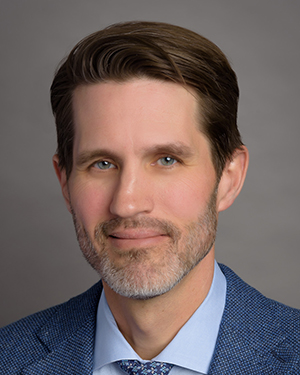Dallas-based Crow Holdings, a national real estate development firm, has built successful partnerships with both investors and locally-based real estate development teams. The firm’s investment management arm Crow Holdings Capital (CHC), in partnership with institutional investors, provides access to capital for projects by Crow Holdings. Focused primarily on multifamily, industrial and office development, the CHC’s build-to-core and core investment strategies aim to provide investors opportunities for long-term income and capital appreciation.
One example of the kind of projects the company develops, Crow Holdings is a recently announced a 45-acre, mixed-used development, The Offices at Southstone Yards in Frisco, Texas, which will include more than one million sq. ft. of office space, including a 235,000-sq.-ft. mass-timber office building.
The project will transform former railyards to commercial uses and includes nine acres of green space to support outdoor amenities, as well as fitness and wellness centers and conference and executive meeting areas. The master-planned development will also include a hotel and 1,000 residential units, including a five-story, 355-unit apartment community by North Carolina-based apartment developer LMC, a division of Lennar Corp.
Coe Juracek, senior managing director of the Investor Coverage Group for CHC, discusses his firm’s investment strategies and development focus.
This interview has been edited for style, length and clarity.
WMRE: What is Crow Holdings’ investment strategy right now? What types of properties is Crow Holdings pursuing and what is the approach—is Crow Holdings searching for core assets, value-add or opportunistic to acquire or focused on ground-up development right now? Can you provide a few examples of assets acquired or under development?
 Coe Juracek: Today, Crow Holdings is focused on the secular trends that are driving the U.S. industrial and multifamily sectors, notably e-commerce and demographics, which we believe will persist through a changing market environment. Persistently strong tenant demand for industrial is driven by the pervasiveness of e-commerce, nearshoring/onshoring of manufacturing and supply-chain constraints. A national housing shortage and affordability concerns for single-family residential options, coupled with clear demographic and domestic migration dynamics, are driving the need for multifamily apartment housing in growth markets across the country.
Coe Juracek: Today, Crow Holdings is focused on the secular trends that are driving the U.S. industrial and multifamily sectors, notably e-commerce and demographics, which we believe will persist through a changing market environment. Persistently strong tenant demand for industrial is driven by the pervasiveness of e-commerce, nearshoring/onshoring of manufacturing and supply-chain constraints. A national housing shortage and affordability concerns for single-family residential options, coupled with clear demographic and domestic migration dynamics, are driving the need for multifamily apartment housing in growth markets across the country.
While many managers and operators in the industry also are pursuing the multifamily and industrial sectors, Crow Holdings has a 75-year history of investing and developing in these property types. Today, it is investing in these sectors through CHC, its investment manager, and real estate development companies, Trammell Crow Residential and Crow Holdings Industrial.
Our interest in these sectors is not in response to pandemic-era dynamics, but rather is based on clear, long-term trends that have underpinned our investment thesis for decades. Our investment management business also focuses on certain specialty property types such as manufactured housing, student housing, self storage and convenience gas, food and service retail, which may offer more defensive investment attributes due to needs-based demand drivers, fragmented ownership markets and lower capex needs.
CHC both acquires and develops properties within our fund business. One area of recent focus has been industrial development near the U.S./Mexico border in California, which has been benefitting from nearshoring of manufacturing and supply constraints relating to lack of land or development moratoriums.
WMRE: Focusing on the investment management business, what kind of returns is your company targeting, and how long does Crow Holdings Capital plan to hold properties acquired or developed?
Coe Juracek: The return targets and hold periods are dependent upon the strategy at hand. CHC began its investment management business in 1998 with the start of the flagship diversified value-add fund series and now maintains $16 billion in assets under management comprised of diversified and sector-specific funds and vehicles across the risk spectrum and with varying life cycles. This breadth of strategies and capital allows us to be a constant player in the marketplace, and opportunities for acquiring assets or portfolios are continuously monitored.
WMRE: Is CHC using leverage to close these deals? If so, how much and from which sources?
Coe Juracek: Yes, we do typically apply leverage to our investments at a level CHC believes is aligned with the overall target risk/return profile of a particular vehicle. We typically focus on working with relationship lenders, including banks and insurance companies, that have partnered with us over decades.
WMRE: What types of investors are participating? What is the minimum contribution Crow Holdings Capital requires? If your company is raising money from among groups and individual investors, do they need to be accredited?
Coe Juracek: CHC’s investor base is generally comprised of global institutional investors, including pensions, insurance companies, financial institutions, sovereign wealth funds, and foundations and endowments, as well as high-net-worth individuals, family offices, and wealth management firms. Because we originate from a family-owned platform, we have an informed perspective on the structural and strategy preferences among individuals and families. Over the last couple of years, we have built a team to focus more concertedly on this investor constituency to enhance access to our institutional-quality real estate capabilities. Minimum investments and investor qualification status vary by product.
WMRE: How is CHC sourcing equity for its investments? What is the specific vehicle used? How is it structured (for example, open or close-end fund, commingled fund, etc.)?
Coe Juracek: Our investor base is diverse in nature, and there is a broad range of structural, regulatory and tax issues to consider in facilitating their investments with us. Our objective is to remain as flexible as possible in the types of structures we offer. Historically, much of our investment activity has occurred through traditional, closed-end private equity structures, but now also includes develop-to-hold fund structures, a private REIT and programmatic joint ventures.
WMRE: How much interest has Crow Holdings Capital found among retail investors for these types of opportunities right now?
Coe Juracek: Due to CHC’s focused efforts around individual and family investors in recent years, we have been fortunate to create partnerships with leading wealth platforms, family offices and individuals directly, which have resulted in a material increase in the portion of equity capital raised from this investor base. This increase is, in part, also attributable to the fact that we’ve offered access to tried-and-true capabilities with a focus on in-demand real estate sectors and, importantly, in structures that address some of the key needs of individual investors.
WMRE: Is there anything you want to say about challenges and opportunities in today's investment environment?
Coe Juracek: The current inflationary and increasing interest rate environment has created a general pause in most real estate transaction activity. We expect credit conditions to remain constrained and transaction volume depressed until inflation eases and the Fed slows its hiking cycle. At that point in time, which many anticipate will occur in late 2023 to early 2024, we expect attractive investment opportunities to arise.
Luckily, we’ve continued to raise new capital in the interim, which has put us in a position to capitalize on these upcoming opportunities. We’re a tactical team that has worked together for decades and weathered multiple cycles. We continue to remain cautious but are optimistic that the depth of our experience and broader firm network—result of 75 years of continuous operating history—will position us and our investors well, as this current market environment continues to evolve.

